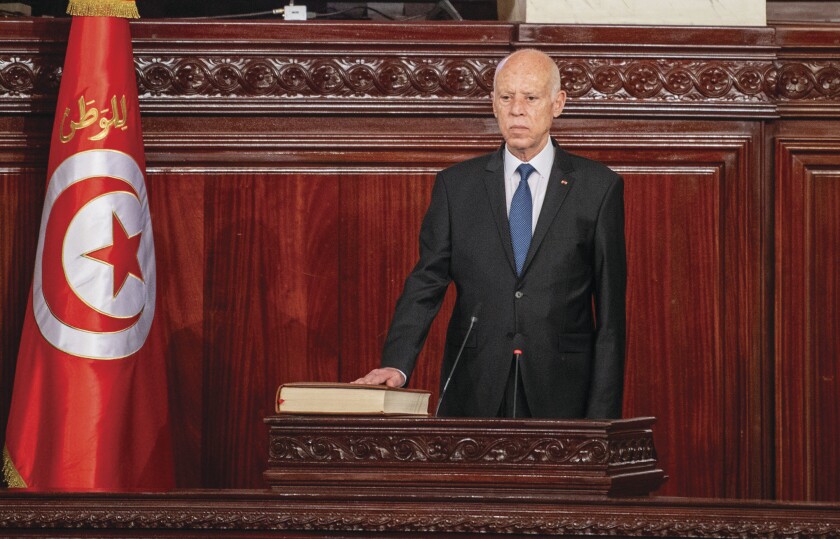Tunisia’s unwillingness to engage with the International Monetary Fund may push it into default, as the government turns to unorthodox measures to avoid a debt crisis.
President Kais Saied has long criticised the IMF, saying in August that “foreign diktats” would worsen poverty. Tunisia sealed a staff-level IMF agreement in 2022 worth $1.9bn, but progress towards executive board approval has frozen, due to the government’s unwillingness to implement fiscal reforms the IMF wants.
Saied won a new term in October’s elections but the poll is widely viewed as neither free nor fair. This will further damage Tunisia’s relationship with the IMF, one analyst said, as would moves to remove the Central Bank of Tunisia’s independence.
“They are very anti-IMF on policy and also ideology,” said James Swanston, MENA economist at Capital Economics in London. “The election and reduction of central bank independence will only hurt that relationship further.”
IMF support has been vital in helping emerging governments avoid debt distress, but it can be hard to implement IMF policy requirements. Kenya shelved a tax-raising finance bill in the summer after riots in protest.
“The IMF has done a better job,” said Jeff Grills, head of US cross-markets and emerging markets debt at Aegon Asset Management in Connecticut. “We’ve had fewer defaults but there are still countries in distress, and what can the IMF do and how do they see future interactions with those countries?”
DEEP DEFICIT
Tunisia, in debt distress, has a hefty budget deficit, which the African Development Bank predicts will reach 6% in 2025. It is struggling to import capital to finance that deficit and fiscal consolidation is not high on Saied’s agenda.
Tunisia faces debt repayments worth 1% of GDP in the first quarter of 2025 and another 0.7% the next quarter, according to Capital Economics. That includes a $1bn Eurobond in January. International capital markets are off the cards and while Tunisia can borrow locally, leaning on domestic banks to buy debt is a risk. “The fiscal situation is very weak,” said Swanston.
Tunisia has avoided default by finding cash from a variety of sources. Saudi Arabia and the EU have provided support. Italy in particular has lent to Tunisia, in exchange for efforts to stop migrants crossing the Mediterranean.
But that can only go so far and the government has turned to other methods to service debts, such as using the central bank’s foreign exchange reserves. EM debt investors are confident there will be no major defaults in the near future, but Tunisia is a worry.
“It is not our base case that there will be a wave of defaults,” said Kaan Nazli, senior economist and EM sovereign debt portfolio manager at Neuberger Berman in London. “But smaller ones like Tunisia may come under pressure.”
Reluctance to engage with the IMF could be Tunisia’s undoing. But Nazli was confident that for the time being, Tunisia will dodge default. “Risks remain,” he said. “But they have built up their reserves and are starting 2025 in much better shape than 2024.”

